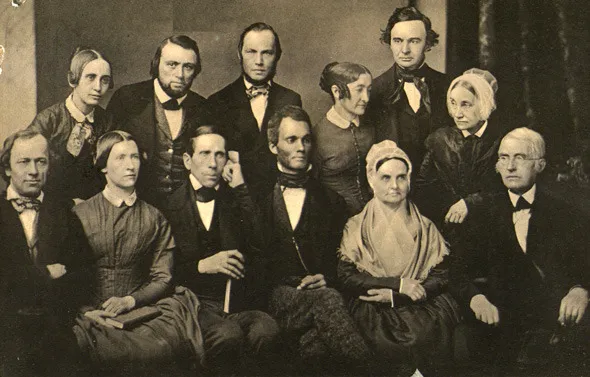- Guide to the Quaker Calendar
The way Quakers dated letters, minutes, and other documents before 1752 can be confusing. See our Quaker Calendar guide for help.
- Friendly Glossary of Abbreviations
See our Friendly Glossary to help understand notes that seem cryptic
- Genealogy + Names
Learn how to get started with your genealogy research.
- Bibliographies
See Reading Lucretia Mott for bibliographies of works by and about Lucretia and James Mott, their associates and times.
A Brief Quaker History
Quakerism rose during the period of the English Civil War of the 1640s with a number of people who were inspired to begin to share their ministry and experience. George Fox is the best known early Quaker and commonly named as the founder of Quakerism. Others whose beliefs closely matched his were also influential in the early movement and are referred to as the Valiant Sixty. These included Margaret Fell, whose home, Swarthmoor Hall, is the namesake of Swarthmore College.
Quakerism spread widely via ministry in person and in print. From its birthplace in Great Britain, Quakers began traveling across the Atlantic in 1655 and Early Friends used the printing press to spread their ministry even further. The Friends Historical Library has copies of many of these early publications.
From the beginning, Friends explored ways of changing the world around them. They have been active in most social justice movements in American history, including abolitionism, women's rights, Native American rights, prison justice, the environment, and the peace movement.
The Friends World Committee for Consultation counted 400,000 Quakers worldwide, in 87 different countries, which includes a number of different Quaker traditions with variations in theology and worship.
To learn more about Quakerism and its history, we recommend the following titles:
- The Quakers, 1656-1723: the evolution of an alternative community
- The Quakers
- The Cambridge Companion to Quakerism




